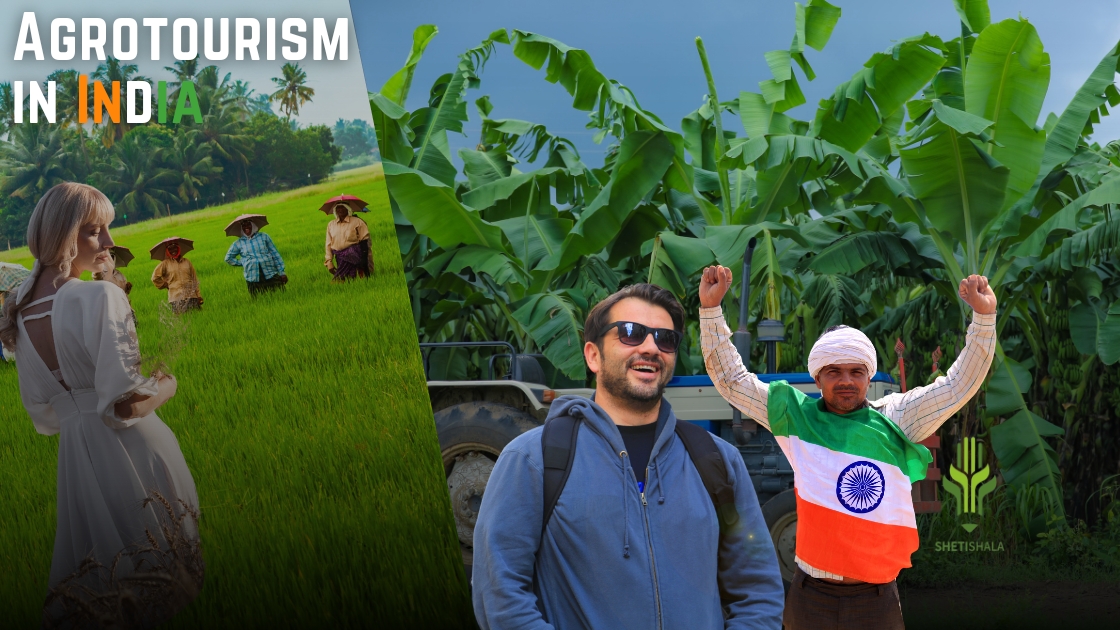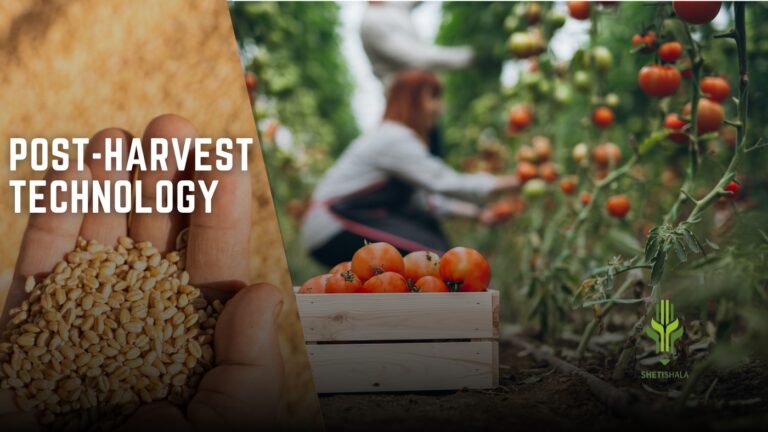Introduction to Agrotourism
Discover the growing trend of Agrotourism in India through our engaging blog. Explore unique experiences such as farm stays, animal husbandry, and plantation visits across the diverse regions of Eastern, Western, and Southern India. Learn how Agrotourism offers a deep connection to rural life, allowing visitors to immerse themselves in traditional farming practices while enjoying the natural beauty of the countryside. Whether you’re interested in sustainable travel or cultural experiences, this blog provides insights into the rich agricultural heritage and the rising popularity of Agrotourism across India.

Definition and Overview
Agrotourism, also known as agricultural tourism, is a form of niche tourism that brings visitors to farms,
ranches, and other agricultural enterprises. It offers tourists the opportunity to experience and learn about
farming, rural life, and local culture. In India, agrotourism combines traditional agricultural practices with
tourism, providing a unique and immersive experience for travelers. Activities can range from farm stays
and plantation tours to participating in farming activities and enjoying rural festivals.
History and Evolution
The concept of agrotourism has deep roots in India’s agrarian society, where agriculture has been the
backbone of the economy for centuries. Traditionally, Indian villages were self-sustained units, with
agriculture playing a central role in the daily lives of people.However, agrotourism as a formal sector
began to gain momentum in the early 20s. Initially, it started with a few progressive farmers opening their
doors to visitors, offering farm tours and homestays.
Over the years, with increased awareness and
demand for sustainable and experiential travel, agrotourism has evolved into a significant sector within
the Indian tourism industry. Today, various states have recognized the potential of agrotourism and are
promoting it through policies and incentives.
Importance and Benefits
Agrotourism offers numerous benefits, making it an important aspect of rural development and sustainable tourism:
Economic Benefits:
It provides an additional source of income for farmers and rural communities, helping
to improve their livelihoods. It also creates job opportunities in rural areas, reducing migration to urban
centers.
Cultural Exchange:
Agrotourism fosters cultural exchange between urban and rural populations, allowing
tourists to experience and appreciate rural lifestyles, traditions, and agricultural practices. This exchange
helps preserve local heritage and customs.
Sustainable Tourism:
By promoting eco-friendly practices and sustainable farming methods, agrotourism
contributes to environmental conservation. It encourages responsible tourism that minimizes negative
impacts on the environment and local communities.
Educational Value:
Agrotourism provides educational experiences for visitors, including children and
students. It raises awareness about agriculture, food production, and sustainable practices, fostering a
deeper understanding of where food comes from and the importance of supporting local farming.
Rural Development:
Agrotourism stimulates infrastructure development in rural areas, such as improved
roads, better communication facilities, and enhanced services. This development benefits both the tourism
sector and the local population.
Health and Well-being:
Spending time in rural environments and engaging in farming activities can have
therapeutic benefits, promoting mental and physical well-being. It offers a break from the hustle and
bustle of city life, providing a serene and refreshing experience.
Popular Agrotourism Destinations
Northern India
Himachal Pradesh
● Kufri and Mashobra:
Known for their apple orchards, these destinations offer visitors the
chance to experience apple picking, cider making, and exploring the beautiful Himalayan
landscapes.
● Kangra Valley:
Renowned for its tea gardens, Kangra Valley offers guided tours of tea
plantations, where visitors can learn about tea cultivation and processing.
Uttarakhand
● Ranikhet and Nainital:
These hill stations are famous for their terraced farms and fruit orchards,
especially plums, peaches, and apricots. Visitors can stay on farms, participate in fruit picking,
and enjoy the scenic beauty of the region.
● Mukteshwar:
Known for its picturesque landscapes and organic farms, Mukteshwar offers a
peaceful retreat with activities such as farming, hiking, and bird watching.
Western India
Maharashtra
Baramati:
This region is a pioneer in agrotourism in India, offering diverse activities like farm stays,
dairy farming, grape harvesting, and tractor rides. The Agri Tourism Development Corporation (ATDC)
has established several agrotourism centers here.
Nashik:
Often referred to as the “Wine Capital of India,” Nashik is famous for its vineyards. Visitors can
tour vineyards, participate in grape stomping, and indulge in wine tasting sessions.
Gujarat
Anand:
Known for the Amul Dairy Cooperative, Anand offers a unique experience of dairy farming and
milk processing. Visitors can tour dairy farms, witness the production process, and taste fresh dairy
products.
Bhuj:
This region offers a blend of traditional farming and cultural experiences. Visitors can explore
organic farms, handicraft villages, and participate in traditional cooking classes.
Southern India
Kerala
● Wayanad:
Famous for its spice plantations, Wayanad offers tours of coffee, tea, and spice farms.
Visitors can stay in traditional homestays, learn about organic farming, and enjoy the serene
natural beauty.
● Munnar:
Known for its tea gardens, Munnar provides an immersive experience in tea cultivation
and processing. Visitors can take guided tours of tea estates, visit tea museums, and enjoy scenic
hikes.
Karnataka
● Coorg:
Also known as Kodagu, Coorg is renowned for its coffee plantations. Visitors can stay on
coffee estates, participate in coffee picking, and enjoy the lush green landscapes and pleasant
weather.
● Hampi:
Beyond its historical significance, Hampi is surrounded by fertile farmlands. Visitors can
experience traditional farming, stay in rural homestays, and explore the ancient ruins.
Eastern India
West Bengal
● Darjeeling:
Famous for its tea estates, Darjeeling offers guided tours of tea gardens, where
visitors can learn about the cultivation and processing of the world-renowned Darjeeling tea.
● Sundarbans:
Known for its mangrove forests and rich biodiversity, Sundarbans offers a unique
blend of eco-tourism and agrotourism. Visitors can explore local farming practices and experience
the region’s natural beauty.
Assam
● Jorhat:
Often referred to as the “Tea Capital of the World,” Jorhat is home to numerous tea
estates. Visitors can take tea plantation tours, participate in tea tasting sessions, and learn about
tea production.
● Majuli:
The world’s largest river island, Majuli offers a unique rural experience with its organic
farms, traditional crafts, and vibrant cultural heritage. Visitors can stay in eco-friendly
accommodations and participate in farming activities.
Types of Agrotourism Activities
Farm Stays
Farm stays offer visitors an immersive experience in rural life by staying on working farms. Guests can
participate in daily farming activities such as planting, harvesting, feeding animals, and milking cows.
Farm stays often include home-cooked meals made from fresh, locally-sourced ingredients. This type of
agrotourism provides a firsthand understanding of agricultural practices and a chance to enjoy the tranquility of the countryside.

Key Experiences:
● Hands-on farming activities
● Traditional meals with farm-fresh produce
● Interaction with local farmers
Organic Farming Tours
Organic farming tours focus on educating visitors about sustainable and eco-friendly agricultural
practices. These tours typically involve visits to organic farms where guests can learn about composting,
natural pest control, crop rotation, and soil health management. Participants often have the opportunity to
engage in activities such as planting seeds, weeding, and harvesting crops.
Key Experiences:
● Learning about organic farming techniques
● Participating in farm activities
● Tasting organic produce
● Workshops on sustainability and environmental conservation
Animal Husbandry Experiences
Animal husbandry experiences provide visitors with a close-up
view of livestock farming. Guests can learn about the care,
breeding, and management of various farm animals such as cows,
goats, sheep, poultry, and horses. Activities may include feeding
animals, collecting eggs, milking cows, and even participating in
sheep shearing or horse grooming.

Key Experiences:
● Feeding and caring for farm animals
● Milking cows or goats
● Collecting eggs from poultry
● Learning about animal breeding and management
Plantation Visits (Tea, Coffee, Spices)
Plantation visits offer a deep dive into the cultivation and
processing of specific crops such as tea, coffee, and spices.
Visitors can tour plantations, see the harvesting process, and
learn about the various stages of production. These tours often
include tastings and workshops where guests can sample and
learn how to use these products.

Key Experiences:
● Guided tours of tea, coffee, or spice plantations
● Learning about cultivation and processing
● Tasting sessions
Wine Tourism
Wine tourism, also known as enotourism, involves visiting vineyards and wineries to learn about
viticulture and wine production. Visitors can tour vineyards, witness grape harvesting, and see the
winemaking process from fermentation to bottling. Wine tasting sessions are a highlight, allowing guests
to sample different varieties and learn about wine pairing and tasting techniques.
Key Experiences:
● Vineyard tours
● Wine production process
● Wine tasting sessions
● Learning about wine pairing and tasting techniques
Case Studies: Successful Agrotourism Projects
Govardhan Ecovillage, Maharashtra
Overview:
Govardhan Ecovillage, located near Mumbai in the Wada district of Maharashtra, is an
award-winning model for sustainable living and rural development. It combines traditional Vedic farming
practices with modern sustainable technologies to create an eco-friendly environment.
Key Features:
● Sustainable Agriculture.
● Eco-friendly Infrastructure
● Community Involvement
● Tourist Activities
Impact:
Govardhan Ecovillage has been recognized globally for its sustainable practices and has
won numerous awards. It serves as a model for integrating tourism with sustainability and
community development, attracting thousands of visitors annually.
Kalpavruksha Farm, Karnataka
Overview:
Kalpavruksha Farm, located near Bengaluru in Karnataka, is a family-run organic farm that
offers a blend of agriculture and tourism. It emphasizes eco-friendly practices and education on
sustainable farming.
Key Features:
● Organic Farming
● Educational Tours
● Farm Stays
● Community Outreach
Impact:
Kalpavruksha Farm has successfully created a niche in the agrotourism market by
offering authentic rural experiences and educational opportunities. It has inspired many visitors to
adopt sustainable practices in their own lives and has contributed to the local economy through
tourism and community programs.
Agrotourism Packages and Experiences
Day Tours
Overview:
Day tours offer a brief but immersive experience into the world of agrotourism, perfect
for those with limited time. These tours typically last a few hours to a full day and provide an
introduction to the agricultural practices of a region.
Typical Activities:
Farm Tours:
Guided walks through farms to learn about crop cultivation, organic farming techniques, and
sustainable practices.
Workshops:
Short sessions on composting, beekeeping, or kitchen gardening.
Harvesting Experience:
Participating in the harvesting of seasonal crops.
Tasting Sessions:
Sampling fresh produce, dairy products, or locally made items like honey or jams.
Animal Interaction:
Feeding or milking farm animals, collecting eggs from poultry.
Weekend Getaways
Overview:
Weekend getaways provide a more relaxed and comprehensive agrotourism experience,
usually spanning two to three days. These packages allow visitors to fully immerse themselves in
farm life and explore the rural surroundings.
Typical Activities:
Extended Farm Activities:
Detailed involvement in daily farming tasks such as planting, weeding, and
harvesting.
Cultural Programs:
Participation in local cultural events, traditional music, dance, or crafts.
Nature Walks:
Guided hikes or nature walks exploring the local flora and fauna.
Cooking Classes:
Learning to prepare traditional meals using farm-fresh ingredients.
Accommodations:
Staying in rustic farmhouses, cottages, or tents for an authentic rural experience.
Long-term Stays
Overview:
Long-term stays are designed for those looking to deeply engage with agricultural
practices, often for a week or more. These experiences are ideal for students, volunteers, or
anyone interested in gaining a thorough understanding of sustainable farming.
Typical Activities:
In-depth Farming:
Continuous involvement in various stages of farming, from soil preparation to
harvesting.
Educational Programs:
Detailed workshops and training sessions on organic farming, permaculture, and
sustainability.
Community Integration:
Opportunities to interact with and learn from local farmers and communities.
Personal Projects:
Working on specific agricultural projects or research activities.
Leisure Activities:
Time to explore local attractions, natural sites, and cultural heritage.
Challenges and Opportunities in Agrotourism
Infrastructure and Accessibility
Challenges:
● Roads and Transportation:
Many agrotourism destinations are located in rural areas with
inadequate road infrastructure, making access difficult, especially during monsoon seasons.
● Accommodation:
Limited availability of quality accommodations such as farm stays,
guesthouses, or eco-lodges can hinder visitor comfort and satisfaction.
● Basic Amenities:
Insufficient availability of amenities such as clean water, electricity, and
sanitation facilities can detract from the visitor experience.
Opportunities:
Infrastructure Development:
Investing in road improvements, public transportation options, and
accommodation upgrades can enhance accessibility and attract more visitors.
Eco-friendly Accommodations:
Developing sustainable and eco-friendly accommodations like
solar-powered cottages or rainwater harvesting systems can appeal to environmentally conscious tourists.
Community-based Tourism Initiatives:
Involving local communities in developing infrastructure can
create ownership and ensure sustainability while improving facilities.
Marketing and Awareness
Challenges:
● Limited Visibility:
Many agrotourism destinations struggle with low visibility and awareness
among potential tourists, both domestically and internationally.
● Competition:
Facing competition from more established tourism sectors and destinations that
have better marketing strategies and budgets.
● Seasonality:
Agrotourism often depends on seasonal activities like harvesting or festivals,
making it challenging to attract visitors year-round.
Opportunities:
● Digital Marketing:
Leveraging social media, travel websites, and digital platforms to promote
agrotourism experiences and reach a broader audience.
● Collaborative Marketing:
Partnering with local tourism boards, travel agencies, and tour
operators to create specialized agrotourism packages and promotions.
● Educational Campaigns:
Increasing awareness through educational campaigns about the
benefits of agrotourism, sustainable farming practices, and cultural experiences.
Policy and Support
Challenges:
● Regulatory Hurdles:
Lack of clear policies and regulations specific to agrotourism can lead to
uncertainty and challenges in obtaining necessary permits and licenses.
● Financial Support:
Limited access to funding and financial incentives for agrotourism
development, infrastructure upgrades, and training programs.
● Capacity Building:
Insufficient training and capacity building initiatives for local communities
and stakeholders involved in agrotourism.
Opportunities:
● Policy Advocacy:
Engaging with government authorities to advocate for favorable policies,
incentives, and regulatory frameworks that support agrotourism development.
● Public-Private Partnerships:
Collaborating with private sector stakeholders, NGOs, and local
communities to leverage resources and expertise for agrotourism projects.
● Training and Skill Development:
Investing in training programs for local communities in
hospitality, sustainable agriculture, and tourism management to enhance service quality and
visitor experience.
Tips for Agrotourism Enthusiasts
Best Time to Visit
Consider the Seasons:
● Harvest Seasons:
Plan your visit during harvesting seasons for crops like fruits, vegetables, or
tea, depending on the region. This allows you to participate in or observe traditional farming
activities.
● Festival Seasons:
Many agrotourism destinations have festivals celebrating local culture and
agriculture. Timing your visit during these festivals enhances your cultural experience.
● Weather Conditions:
Check the weather patterns of the region. Avoid monsoon seasons if road
accessibility is a concern, and choose cooler months for comfortable outdoor activities.
What to Pack
Essential Items:
● Comfortable Clothing:
Pack lightweight, breathable clothing suitable for outdoor activities.
Include layers for cooler evenings or higher altitudes.
● Footwear:
Bring sturdy, comfortable shoes suitable for walking on farms and potentially uneven
terrain.
● Sun Protection:
Carry sunscreen, sunglasses, and a hat to protect against strong sunlight,
especially during outdoor activities.
● Insect Repellent:
Depending on the location, insects can be a concern. Pack insect repellent to avoid bites.
● Reusable Water Bottle:
Stay hydrated with a reusable water bottle, especially during outdoor
tours and activities.
● Camera or Binoculars:
Capture scenic landscapes, wildlife, and cultural moments during your
agrotourism experience.
Health and Safety Tips
Precautions to Take:
● Stay Informed:
Research local health advisories and safety guidelines before your trip. Stay
updated on any potential risks or precautions.
● Medical Supplies:
Pack any necessary medications and a basic first aid kit for minor injuries or
ailments.
● Hygiene Practices:
Maintain good hygiene, especially when interacting with animals or visiting
farms. Wash hands frequently, and carry hand sanitizer.
● Emergency Contacts:
Keep a list of emergency contacts, including local hospitals, tour
operators, and embassy or consulate information.
● Respect Local Customs:
Be respectful of local customs, traditions, and wildlife. Follow
guidelines provided by tour guides or hosts.
Future of Agrotourism in India
Emerging Trends
1. Sustainable Practices:
● Organic Farming:
Increasing demand for organic produce drives agrotourism towards
sustainable farming practices.
● Farm-to-Table Experiences:
Growing interest in farm-to-table dining experiences where visitors
can directly consume farm-fresh produce.
2. Diversification of Experiences:
● Educational Tourism:
Offering workshops and hands-on experiences in sustainable agriculture,
permaculture, and eco-friendly practices.
● Cultural Immersion:
Integrating local festivals, traditional crafts, and culinary traditions into
agrotourism packages to provide a holistic experience.
3. Wellness and Retreats:
● Yoga and Wellness Retreats:
Combining agrotourism with wellness activities such as yoga,
meditation, and spa treatments in natural settings.
4. Niche Markets:
● Adventure and Eco-tourism:
Incorporating adventure activities like trekking, wildlife safaris,
and bird watching in agricultural landscapes.
● Heritage Tourism:
Promoting heritage farms and estates with historical significance, offering
insights into colonial-era agriculture.
Technological Innovations
1. Digital Platforms:
● Online Booking Systems:
Enhancing accessibility and convenience for tourists to book
agrotourism experiences online.
● Virtual Tours:
Offering virtual reality (VR) or augmented reality (AR) experiences to showcase
farms, plantations, and agricultural processes.
2. Smart Farming Practices:
● Precision Agriculture:
Using sensors, drones, and data analytics to optimize farming practices,
improve crop yields, and reduce environmental impact.
● IoT Integration:
Implementing Internet of Things (IoT) devices for real-time monitoring of soil
conditions, weather patterns, and crop health.
3. Sustainable Infrastructure:
● Green Buildings:
Constructing eco-friendly accommodations and visitor centers powered by
renewable energy sources.
● Water Management Systems:
Implementing efficient irrigation systems and rainwater
harvesting to conserve water resources.
Government Initiatives
1. Policy Support:
● Promotion of Agrotourism:
Developing policies and incentives to support agrotourism
development, including financial assistance and regulatory frameworks.
● Infrastructure Development:
Investing in rural infrastructure, road connectivity, and amenities
to improve accessibility for tourists.
2. Skill Development and Training:
● Capacity Building:
Providing training programs for local communities in hospitality, sustainable
farming practices, and tourism management to enhance service quality.
● Certification Programs:
Introducing certifications and standards for agrotourism facilities to
ensure quality and safety standards are met.
3. Marketing and Promotion:
● National and International Campaigns:
Collaborating with tourism boards and industry
stakeholders to market agrotourism destinations globally, showcasing India’s diverse agricultural
heritage.
Resources and References
Books and Articles
“Agrotourism: A Development Alternative in Rural India” by Rakesh Kapoor
Websites and Blogs




